- Home
- Robert Asprin
For King and Country Page 26
For King and Country Read online
Page 26
* * *
Morgana waited for the first shocked hubbub to die down, then sent her sons with Medraut to begin packing for the journey home, and quietly took aside the young runner who'd brought the news. She poured a cup of wine for him with her own hands and guided him to a bench near the fire, gesturing for servants to bring hot food. The lad gulped almost convulsively at the wine, with a stark look in his eyes that Brenna McEgan had seen all too often, in the eyes of survivors after a bomb blast or a spray of bullets or a bottle of flaming petrol had set a block of flats alight. Both she and Morgana waited patiently for the lad to calm himself, to recover his strength and his wind, waited for him to begin eating the thick venison stew in his steaming bowl. At length, Morgana spoke, very gently. "When you are able, lad, I must know what you've seen."
He jerked a frightened gaze up to meet hers. "Isn't seemly t'tell a lady such things," he said, voice cracking with distress.
"I understand your concern. But I am a sovereign queen, Morgana of Galwyddel and Ynys Manaw, and my lands and people are also threatened. I must know the scope and depth of what our Saxon adversary is willing to inflict, before I can make decisions on how best to protect my people."
The boy thought for a moment, tears battling a hardened, old man's anger in his eyes, then he nodded. " 'Tis vile, Queen Morgana. They left alive not even one downy yellow chick in the farmyards. Burnt the fields and forests for miles, it was, and left the dead hacked into pieces. Men, women, infants in their cradles. 'Twas unnatural savage, what they did, and to every living thing that came in their way. I'd gone to the marshes to cut withies for me mother, when they came. Burnt the house and killed her and all my sisters, and me with nothing but a three-inch knife on me belt."
Tears welled up, impatiently knuckled aside. "I wanted to kill them, and would have tried, but if they were killing everyone the way they killed me mother and sisters, there would've been no one left to sound the alarm at Caerleul. So I lay in the mud with the marsh grass all round me 'til they'd gone, and ran from Long Meg to Penrith, to reach the Roman road, and everywhere I ran, there was nothing left alive save the crows." He hesitated, then asked in a voice breaking with youth and stress, "Did I do wrong, to lie in the grasses while me own family lay dying?"
Morgana smoothed the boy's lank, sweat-soaked hair back from his brow and placed a gentle kiss there. "No, lad. Hundreds of others may well be saved, because you hid in the grass to warn Caerleul. Thousands, perhaps, for once the cataphracti of the northern kingdoms begin the hunt, Cutha will be forced to fly ahead of our chargers, without taking the time to butcher every Briton whose path crosses his. 'Tis certain, God guided you to the wisest course, there in the marsh, and sent you with wings on your feet to speed the warning. Finish your stew, then, and I'll have a servant show you where to wash and sleep tonight. Were your father's people freeholders?"
The boy nodded.
" 'Tis good, then. I'll ask King Meirchion to look after you properly. If ever you need or want a place to start again, remember my name and come to Caer-Birrenswark at Galwyddel. I'll see that you receive a fine freehold."
The tears spilled over as the boy's eyes lost at least some of the starkness which had aged him so traumatically. "I'm that grateful, I am."
"And so am I." Morgana left him to finish his meal and found Queen Thaney, who was busy organizing an army of servants to help the kings and queens of Britain make haste for departure. Morgana passed along her request that the boy's courage and quick wits be rewarded suitably. Her stepdaughter's eyes misted. "Of course we'll take care of the lad, Morgana. Thank you for letting me know."
"I'll be riding for Caer-Birrenswark as soon as the horses can be saddled."
Thaney gave her a swift embrace and Morgana kissed the younger woman's cheek, then left her to her work. It was the task of only a few moments to ready her own things, find Medraut and her sons busy stuffing clothing into leather satchels, and arrange for her retainers, who rode as armed escort everywhere Morgana traveled, to prepare for the journey north. As she was looking for a servant to help carry their baggage out to the stable for tying to the packhorses, the minstrel Lailoken brushed past, murmuring, "Half an hour's ride north along the road to Caer-Gretna?"
She nodded, moving on without speaking.
When someone behind her began whistling a shockingly familiar tune, Brenna whipped around, startling Morgana with the force of her reaction. She peered into the throng of men and women jammed in the hall, unable to see who had been whistling that particular song.
What is it? Morgana wanted to know, understandably perplexed at having her body hijacked in so public a fashion.
Realizing that she might well have given herself away by her own reaction, Brenna turned quickly and headed for the door, fighting hard to disguise her distress. That particular song was engraved in her memory, sung each July during the Orangemen's parades, commemorating a battle in the bloody seventeenth century. Bloody, indeed, as Irish Catholics had been slaughtered like pigs, hunted down in the fields for sport by the conquering English Protestants, with bounties offered on Irish heads, the same hideous sort of bounty the huntsmen collected for bringing in wolf pelts...
More than four hundred years of gloating later, the Orangemen still celebrated their victory in their "marching season" with parades through Catholic neighborhoods—parades received with much the same welcome as American Ku Klux Klan marches were received in the Jewish neighborhoods they swaggered through, exercising their right to free speech and assembly to rub salt in the wounds of their favorite victims. Every marching season, violence erupted between hotheaded Catholics who refused to take it any longer and hotheaded Protestants who had not yet tired of dishing it out.
No, Brenna McEgan was not likely to forget that song.
Morgana, realizing the full horror of Brenna's associations with Cedric Banning's favorite tune, not only sent her a great wave of sympathy, she also stopped the next servant she spotted, asking softly, "Can you tell me, has anyone been singing this tune?" She hummed the melodic line in a near whisper, to keep the sound from carrying to anyone else's ears.
The woman gave her a curious stare, then nodded. "Oh, aye, that they have, Queen Morgana, all the minstrels have been singing it of late. It is a catching little tune, isn't it? I've caught meself many a day now, humming it while I work. It does make the day go a bit faster."
"Yes, I can see that it would. I was just curious, since I hadn't heard it before this week. I'd like my minstrels at Caer-Birrenswark to learn it. Thank you, I'll ask Rheged's court musicians about it."
One of the minstrels...
Lailoken himself?
'Tis possible, Morgana mused, but with so many visitors in Caerleul, who can guess where the tune was first heard and from whom? Minstrels have a quick ear for such things and it does have a way of sticking in the mind.
It certainly does, Brenna agreed darkly.
Morgana pursed her lips in thought. Would your mad Banning have needed a host somewhere close to Caer-Iudeu, as I was for your arrival?
Brenna hadn't thought about that. It's likely, yes. But I can't tell how far the range might be. We'd had no chance to field test that, before Banning murdered poor Dr. Beckett.
It would be interesting, Morgana mused, to discover who has recently been in Caer-Iudeu, and compare those names with the men and women who've been in Caerleul this week past.
Brenna held back a groan. Beginning with Artorius and your brother-in-law Ancelotis and Medraut. And Covianna Nim. There's nothing to indicate that a host's body must match the traveler's gender. Banning could have taken over any man or woman within several miles of Caer-Iudeu. Lord, and there's every servant who came south with us, not to mention the soldiers of the cataphracti, Brenna rattled off the list in some despair.
True, Morgana nodded, making her way back to the stable to collect her palfrey, but we can look for other clues. I'm thinking Ancelotis' collapse is a matter to consider most carefully. If someone arrived
in his head the way you appeared in mine, like a thunderclap out of hell, I would've been astonished if he hadn't fallen from his horse, struck senseless.
In one sudden and blinding flash, Brenna put together all the odd little discrepancies about Ancelotis' recent behavior. A frequently distracted air, as though in conversation with himself, focused inward. Clumsiness on horseback, when Ancelotis must surely have grown up in the saddle. And that display of martial arts in the arena, when he'd defeated Cutha with his bare hands. That was a twenty-first-century fighting technique.
But is it something your terrorist, Banning, would have learned? Morgana wanted to know. Or is it likely the other traveler, the soldier who is mistakenly hunting you?
Brenna wasn't sure. I don't know what Banning will or won't have studied, learning his trade. Martial arts are popular enough with all sorts of men; with women, as well, come to that. But the SAS most certainly does train its soldiers in unarmed combat techniques. Just like the ones Ancelotis used.
Morgana frowned. If your life depended upon a guess, which would you choose? Terrorist or misguided enemy?
Huh. Brenna grimaced, unhappy with the choices offered and well aware that a mistake could cost her life—and the lives of innocent billions. Weighing all the factors at hand, she finally decided. Misguided enemy, I think. Somehow, Ancelotis' behavior strikes me as confused but honorable. And if there's one thing I learned, working with Cedric Banning day after day, it's his love for games of deception. Hiding his true identity while flaunting little hints like his paisley scarf. I haven't seen any such quirks in Ancelotis' personality.
What is this paisley scarf, what does it mean? I don't understand its significance.
It's a nasty little visual pun. Paisley is a pattern woven into cloth. It's also a name given to Orangemen who advocate violence. Banning's a Paisleyite, Brenna explained grimply. The group is named after a Protestant minister of the late twentieth century, an icon of Orange culture. He preached Orange supremacy from his pulpit in Belfast, to the shame of many other Protestant ministers—most of whom deplore the killing as much as the Catholic priests do. But Paisley was so caught up in the fight to save Orange culture from the Catholic menace, he behaved like a man under siege, fighting for survival.
Brenna sighed. He gave many a questionable organization his public approval, while never quite staining his own hands. Wearing the Paisley scarf was Banning's way of laughing at me, flaunting his beliefs under my nose when I'd no way to prove who and what he was. And I'd not act to kill a man unless I were absolutely sure of his guilt. For the first time since finding the inner strength to leave Cumann Na Mbann, Brenna regretted—bitterly—her decision to wait until she had more evidence. If only she'd called in the IRA hit squad sooner...
Morgana said gently, her thoughts full of grief and understanding, Never castigate yourself, Brenna of Clan McEgan for trying to spare the lives of innocents before moving to strike the guilty. To do otherwise is to become as he is, mad with hatred and the desire for vengeance. There are many great injustices in life—that, at least, has not changed over the centuries. We shall simply do our best to see that your world's injustices do not add to mine.
Brenna could not ask for anything more.
* * *
Covianna Nim watched in deep satisfaction as Morgana rode out the gates of the Sixth Legion's fortress of Caerleul, on her way to commit treason—a circumstance that Covianna found utterly delicious. Once certain that Morgana and her fool of a nephew were truly gone, she returned to her own room, where her clothing and satchels of herbs and other substances—poisons with far darker uses than mere healing—sat waiting for her own departure.
She pulled from her baggage a small, flat packet in which she kept a precious supply of thin-scraped vellum, calfskin as pale as the skin of a white onion, with a far smoother surface. She chose a smallish piece, trimmed from a larger vellum she had written while in Caer-Iudeu, and set it on the table beside her borrowed bed. Mixing a small amount of ink from a powdered base, using a few splashes of white wine—the best liquid for producing a fine writing ink—Covianna trimmed her goose-quill pen, tapped her lips with the feathered end of the shaft, then dipped and began to write.
Artorius, she began, using the beautifully scripted, cursive Latin she had learned as a girl from her dearly beloved Marguase—it pains me enormously to be the bearer of ill tidings, but my concern for the safety of Britain impels me to send you this warning. It is, perhaps, a symptom of some inherited madness, but Morgana has lost all reason. She has made secret arrangements to betray Galwyddel to the Irish of Dalriada.
I heard her, with my own ears, plotting to secure for Medraut the throne of Galwyddel, which he will earn by betraying you and all of Britain. It is the form of this betrayal which distresses me so deeply. He is to marry a princess of Irish blood, a marriage Morgana is negotiating to bring about. As soon as the marriage is consummated, he will invite in her Dalriadan kinsmen as foederati.
My heart grieves that this is so, for I believe Morgana truly thinks this insanity to be the right thing to do. It is clear to me, at least, that the Dalriadans will take full advantage of our distraction in the south and invade at full strength the moment she has concluded this mad treaty. Please, for the sake of Britain, ride to Caer-Birrenswark and stop her before she commits this act of desperate folly.
I will ask a minstrel to deliver this into your hand, as I must ride south with all haste to help my own kinsmen at Glastenning Tor prepare for defense—for if the Saxons break through our lines at Caer-Badonicus, they will surely strike next at the Tor. I pray that you do not blame Morgana too deeply, for I believe the shock of her husband's death has left her so deeply shaken, she is not in her right mind. Treat her gently, I beg of you, but halt this madness before it is too late for Galwyddel and all of Britain. I am, humbly, your obedient servant, Covianna Nim of Glastenning Tor.
She carefully blew the final lines of ink dry, disposed of the excess ink by pouring it into the chamber pot, and rinsed the little glass inkwell with water from her basin before carefully storing it away again in her baggage, along with the quill in its pen case and the penknife in a second case tucked inside the first. She lit a taper of beeswax from an oil lamp, then creased the vellum into a small square, so that all sides were sealed by folds.
Covianna dripped melted wax onto the final, open edge and pressed her ring into it, leaving an impression of Glastenning Tor's heraldic symbol: a labyrinth with a sword at the center. Blowing out the candle flame, she sat back and surveyed her handiwork. A small, satisfied smile chased its way across her lips. She laughed softly, a low and sultry sound, then tucked the note into the sleeve of her gown and went in search of a minstrel who could be trusted to do exactly what he was instructed to do, no more and no less. She had made use of him before, a time or two, and had found him to be quite reliable. His eyes lit like bonfires at Beltane when he saw her.
"Covianna Nim!"
She allowed him to kiss her fingertips.
"Bricriu, I would have you deliver this note to Artorius after I have gone. But do not take it straight to him. I must try and verify the matters written herein. If I do not contact you by the next full moon, then the matter is true and Artorius must know of it."
She handed the small, folded vellum over—and with it a coin glittering golden in the late and slanting light of afternoon. A gold aureus of Rome, it bore the portrait of the last emperor of the west, Romulus Augustulus. Twenty-five years after their last minting, the golden Augustulus coins still circulated amongst the peoples of the vanishing empire, even as far afield as Britain, which still managed a lively trade with her former imperial masters despite unrest, civil war, and invasion that seemed to sweeping across the entire known world.
Covianna, brought up in a tribe of artisans who were also shrewd traders, had learned the value of such coins almost before she could walk. She had acquired a goodly collection of the aureus coins over the years, which she made excellent use of
from time to time. When she held up the glittering golden disc, worth a hundred silver sestertii and twice the value of Constantine the Great's gold solidus, and caught the answering glint in the minstrel's eye, she knew she had him.
"Agree to follow my instructions to the letter," she purred, "and this will be yours immediately. Breathe not one single word of this to anyone, not even to your fellow minstrels or bedmate, but give it straight into Artorius' hand, and I will provide others. Multiple others. Once you have given it to Artorius, bring his response to me at Glastenning Tor—and ride like wildfire, for time will be critical by then." As she spoke, Covianna turned the coin over and over in her fingers, toying with it, watching in amusement the way the minstrel's eyes followed the glitter of light. She flipped it to him without warning.
He caught it with a snatch like a starving dog, turning it over and staring at it while babbling, "I swear by Afallach and Christ, I will put your letter into the Dux Bellorum's own hand and no other's, even if I must ride to Avalonis across the waves and back again." He slipped the coin into his belt pouch, then held out his hand for the note. "Provided I have not heard otherwise from you, come the full moon, the task will be done."

 The Complete Phule’s Company Boxed Set
The Complete Phule’s Company Boxed Set The Adventures of Duncan & Mallory: The Beginning
The Adventures of Duncan & Mallory: The Beginning Myth Conceptions
Myth Conceptions Sween Myth-tery of Life m-10
Sween Myth-tery of Life m-10 Hit Or Myth m-4
Hit Or Myth m-4 MA08 Myth-Nomers and Im-Pervections
MA08 Myth-Nomers and Im-Pervections Catwoman - Tiger Hunt
Catwoman - Tiger Hunt myth-taken identity m-14
myth-taken identity m-14 MA03 Myth Directions
MA03 Myth Directions MA07 MYTH Inc Link
MA07 MYTH Inc Link Dragons Luck
Dragons Luck MYTH-Interpretations: The Worlds of Robert Asprin
MYTH-Interpretations: The Worlds of Robert Asprin MA10 Sweet Myth-tery of Life
MA10 Sweet Myth-tery of Life No Phule Like an Old Phule
No Phule Like an Old Phule Phule's Errand pc-6
Phule's Errand pc-6 Myth-ion Improbable
Myth-ion Improbable MA11-12 Myth-ion Improbable Something Myth-Inc
MA11-12 Myth-ion Improbable Something Myth-Inc Sweet Myth-tery of Life
Sweet Myth-tery of Life MA02 Myth Conceptions
MA02 Myth Conceptions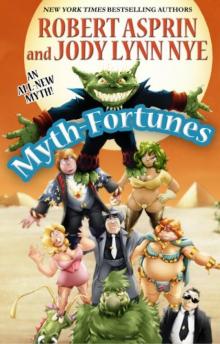 Myth-Fortunes m-19
Myth-Fortunes m-19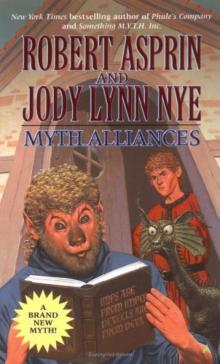 Myth Alliances m-14
Myth Alliances m-14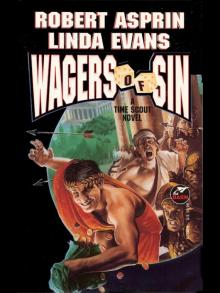 Wagers of Sin
Wagers of Sin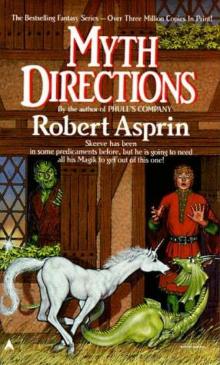 Myth Directions
Myth Directions The Bug Wars
The Bug Wars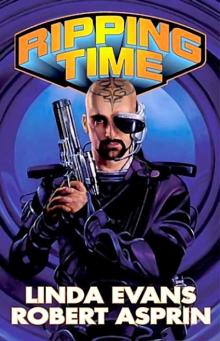 Ripping Time
Ripping Time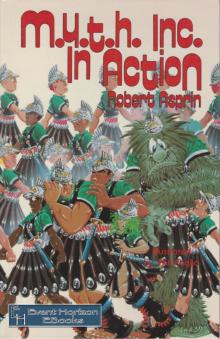 MA09 Myth Inc in Action
MA09 Myth Inc in Action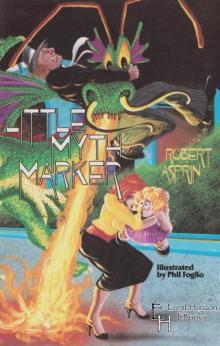 MA06 Little Myth Marker
MA06 Little Myth Marker Phules Paradise
Phules Paradise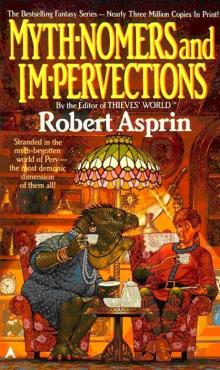 Myth-Nomers & Im-Pervections
Myth-Nomers & Im-Pervections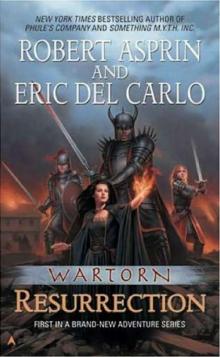 Wartorn: Resurrection w-1
Wartorn: Resurrection w-1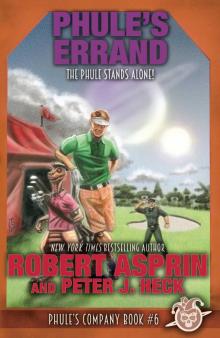 Phule's Errand
Phule's Errand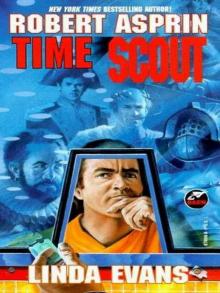 Time Scout
Time Scout Tambu
Tambu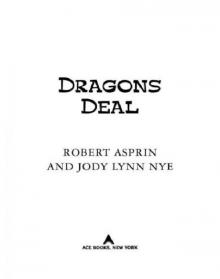 Dragons Deal
Dragons Deal MYTH-Taken Identity
MYTH-Taken Identity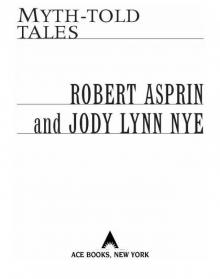 Myth-Told Tales
Myth-Told Tales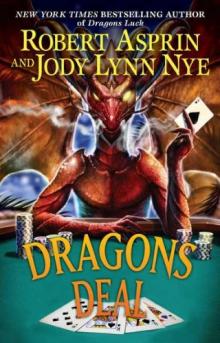 Dragons deal gm-3
Dragons deal gm-3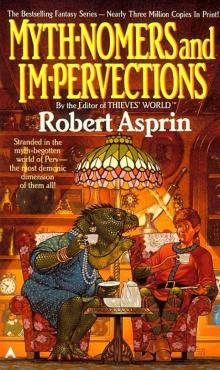 Myth-Nomers and Im-Pervections m-8
Myth-Nomers and Im-Pervections m-8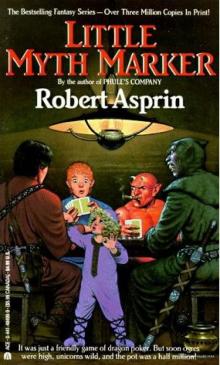 Little Myth Marker
Little Myth Marker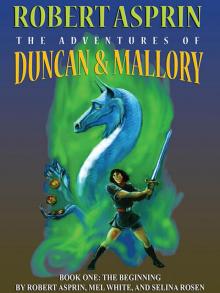 The Adventures of Duncan & Mallory
The Adventures of Duncan & Mallory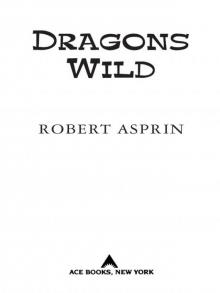 Dragons Wild
Dragons Wild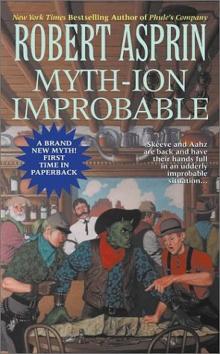 Myth-ion Improbable m-11
Myth-ion Improbable m-11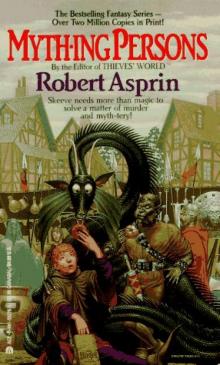 Myth-Ing Persons m-5
Myth-Ing Persons m-5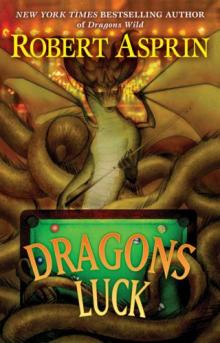 Dragons Luck gm-2
Dragons Luck gm-2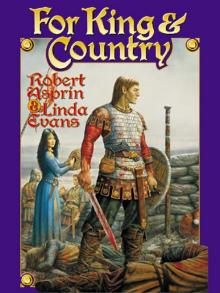 For King and Country
For King and Country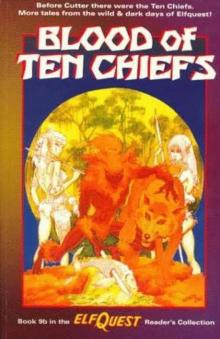 The Blood of Ten Chiefs
The Blood of Ten Chiefs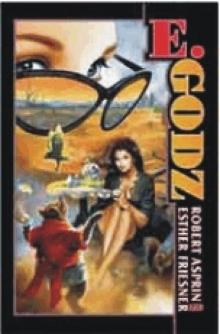 E.Godz
E.Godz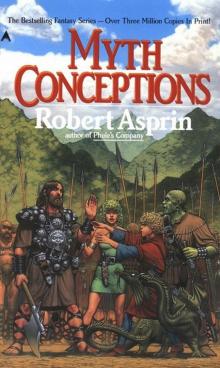 MYTH CONCEPTIONS m-2
MYTH CONCEPTIONS m-2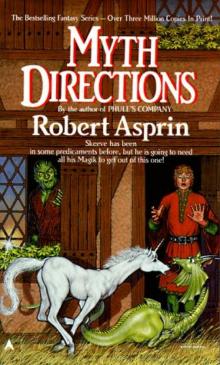 Myth Directions m-3
Myth Directions m-3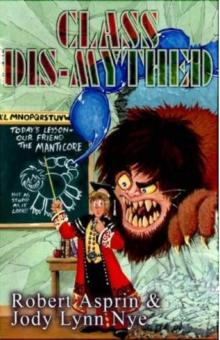 Class Dis-M.Y.T.H.ed
Class Dis-M.Y.T.H.ed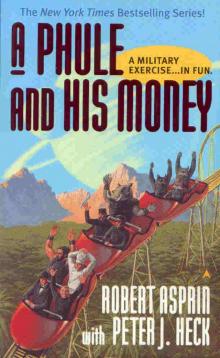 A Phule and His Money
A Phule and His Money Aftermath tw-10
Aftermath tw-10 The House That Jack Built
The House That Jack Built Stealers' Sky tw-12
Stealers' Sky tw-12 Uneasy Alliances tw-11
Uneasy Alliances tw-11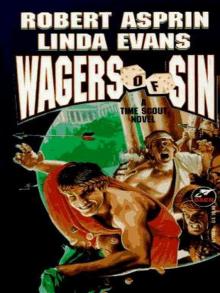 Wages of Sin
Wages of Sin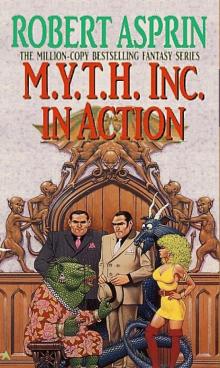 M.Y.T.H. Inc In Action m-9
M.Y.T.H. Inc In Action m-9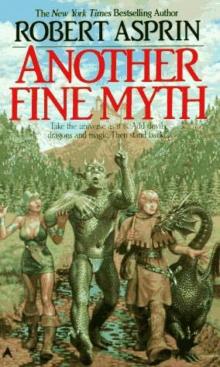 Another Fine Myth
Another Fine Myth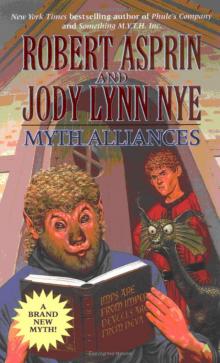 Myth Alliances
Myth Alliances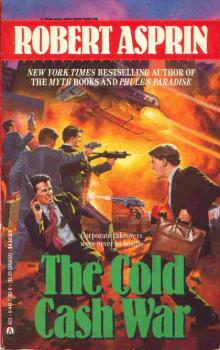 The Cold Cash War
The Cold Cash War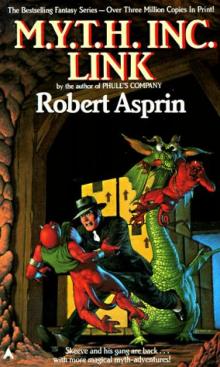 M.Y.T.H. Inc. Link m-7
M.Y.T.H. Inc. Link m-7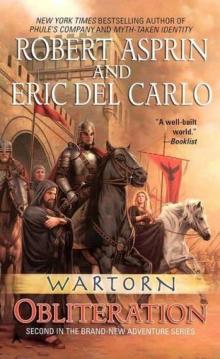 Wartorn Obliteration w-2
Wartorn Obliteration w-2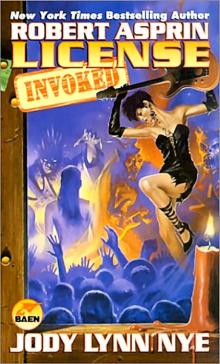 License Invoked
License Invoked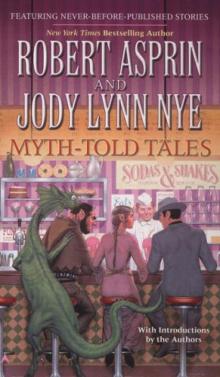 Myth-Told Tales m-13
Myth-Told Tales m-13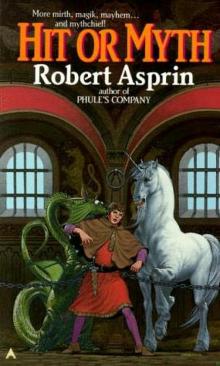 Hit Or Myth
Hit Or Myth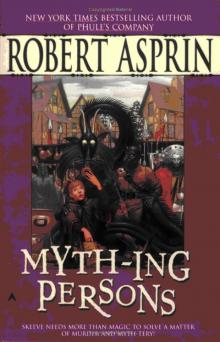 Myth-Ing Persons
Myth-Ing Persons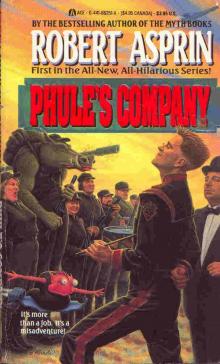 Phule's Company
Phule's Company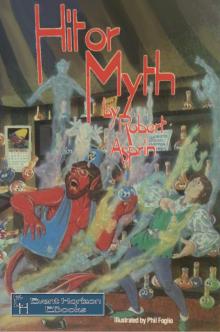 MA04 Hit or Myth
MA04 Hit or Myth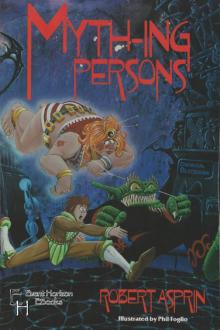 MA05 Myth-ing Persons
MA05 Myth-ing Persons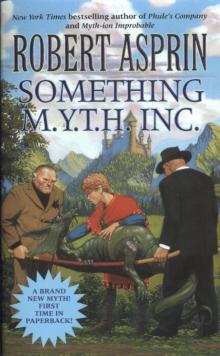 Something MYTH Inc m-12
Something MYTH Inc m-12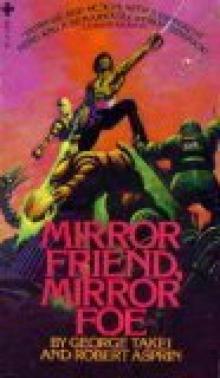 Mirror Friend, Mirror Foe
Mirror Friend, Mirror Foe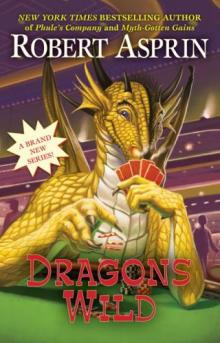 Dragons Wild gm-1
Dragons Wild gm-1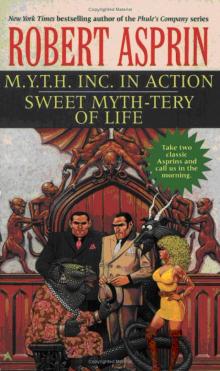 M.Y.T.H. Inc in Action
M.Y.T.H. Inc in Action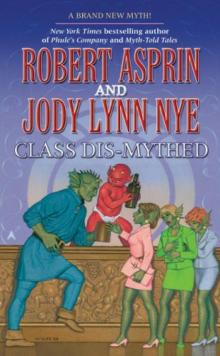 Class Dis-Mythed m-16
Class Dis-Mythed m-16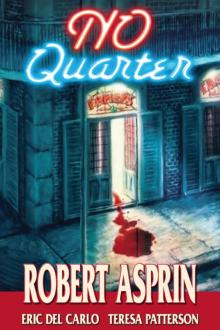 NO Quarter
NO Quarter